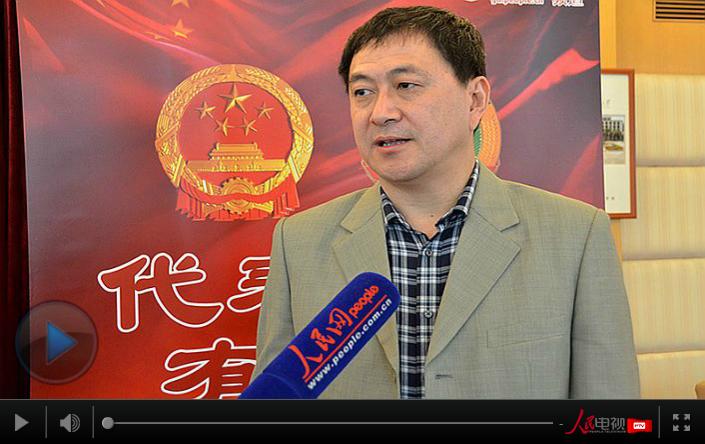As the 2015 Guangdong Provincial Two Sessions will soon convene, generating a lot of media coverage, SUI Guangjun, member of the CPPCC Standing Committee of Guangdong Province, the Party Secretary of GDUFS and the Executive Deputy Director of the Guangdong Research Institute for International Strategies (GRIIS) accepted a request for an interview with the column “Representatives Have Words to Say” of people.com.cn on the issues of how to improve Guangdong’s foreign trade, the role of the Guangdong Free Trade Zone (FTZ) in the construction of “One Belt and One Road”, and including how the government might help local industries, enterprises and institutions in the construction of a 21st century “Maritime Silk Road”, including the role of new-type think tanks.


During the interview, SUI firstly remarked that, to further open the borders doesn’t mean accepting all the foreign investments offered and that we should improve the quality of foreign trade. He says that the development of the economy and trade is the vital part of "One Belt and One Road". Guangdong must transform and upgrade its foreign trade in order to have a bigger say in international trade. ”On the one hand, China should introduce high-end manufacturing industries, innovative technologies and high-end service industries. On the other hand, China should go global and utilize the foreign resources and markets where the country now has access. In this process, new technologies and innovative factors should be absorbed to improve and transform the industrial strategy to a higher level” says Sui.

SUI Guangjun Accepts an Interview with People.com.cn on“One Belt and One Road”
It’s known that Guangdong is the birthplace of the maritime silk road in ancient China and forerunner of the reform and opening-up. Being the first hometown of overseas Chinese, Guangdong bears a long history of economic and trade cooperation and civil exchanges with the countries along the maritime Silk Road. Undoubtedly Guangdong enjoys exceptional advantages in geography and location in the construction of the 21st Century Maritime Silk Road. As for this, SUI hopes the government will establish a Guangdong Maritime Silk Road Construction Fund to provide more support for local industries, enterprises and institutions to actively take part in the construction of a new Maritime Silk Road.
Moreover, considering the fact that Guangdong FTZ (Free Trade Zone) , as one of the three new FTZs, deeply incorporates Guangdong with Hong Kong and Macao, becoming the vital bridgehead of the connection of the new Maritime Silk Road. SUI points out that the establishment of a new Guangdong FTZ is not only an important strategic support for “One Belt and One Road”, but also a vanguard in the process of reform and opening-up. SUI notes that a “Guangdong FTZ can learn from and share experiences with Hong Kong and key foreign countries, to enhance and accelerate the reform.”
In addition, SUI expresses the idea that the new-type think tank functions, such as external brain power, microphone and revolving door of the government would be innovations that can help the Province to lead the way in new areas. This means that the think tank should not only be built to provide valuable, scientific, systematic and independent foundations and suggestions for decision-making, but it must also have its own voice ,i.e. popularizing the values of the new innovations, strategies and other measures. Too, it should strengthen exchanges between the relevant departments of the government, as well as communications between scholars.
Network media such as xinmin.cn, eastday.com, dayoo.com, 163.com all forwarded the interview and the news.com site of GDUFS is also forwarding the written text and videos of the interview from people.com.cn.

